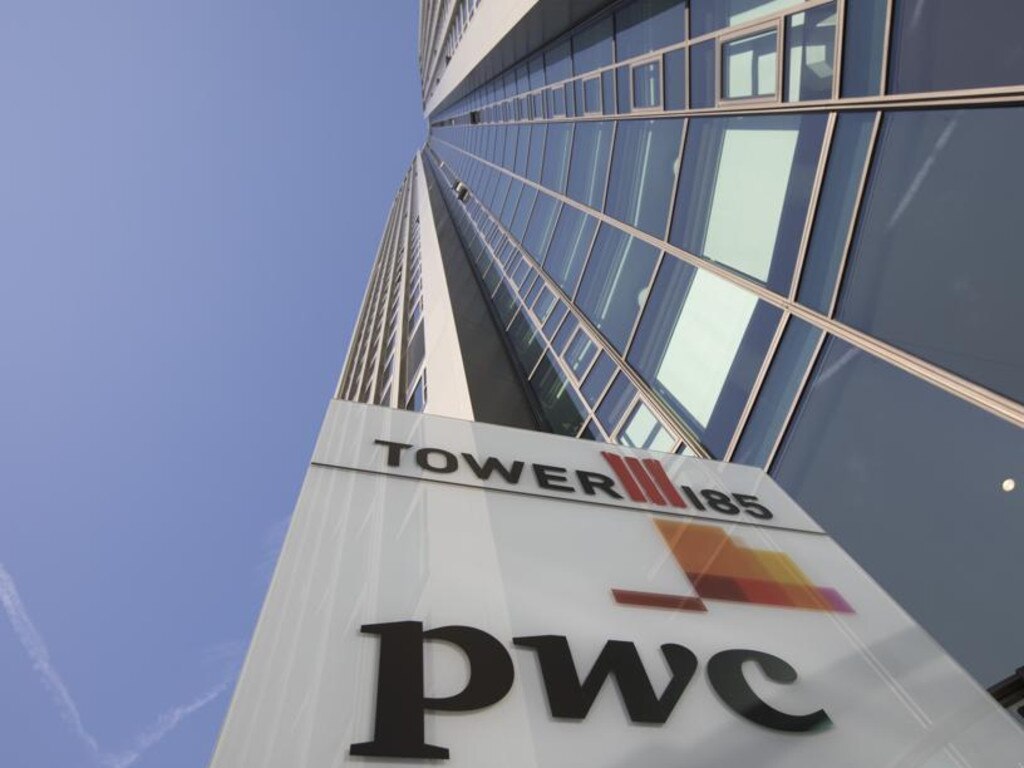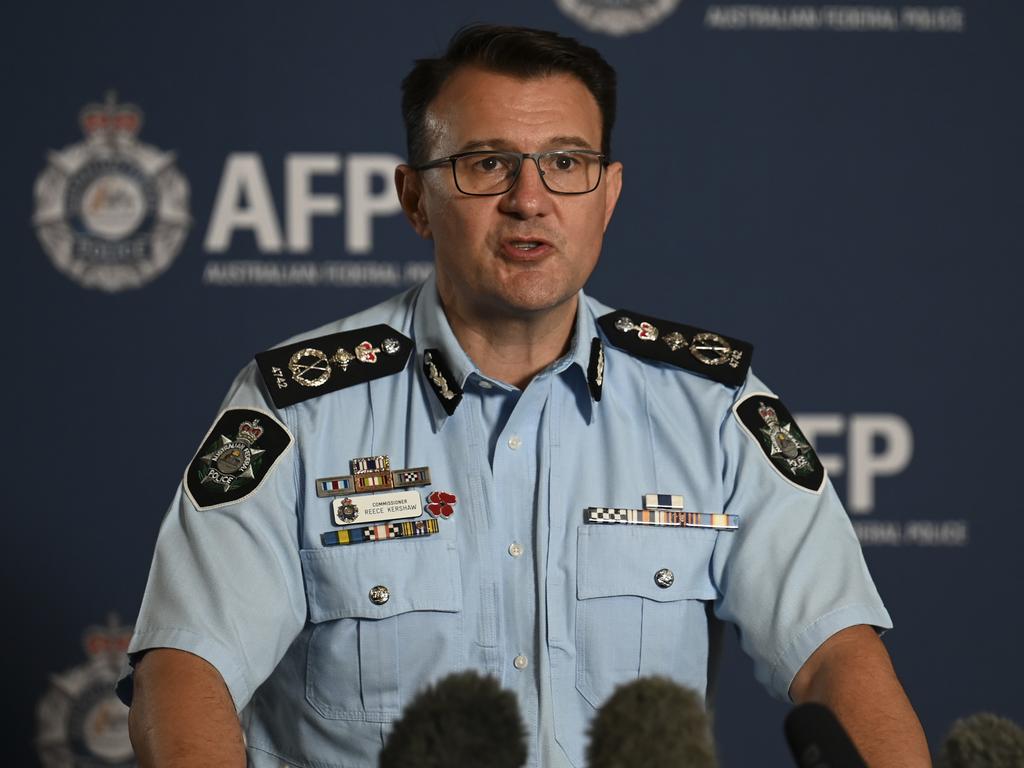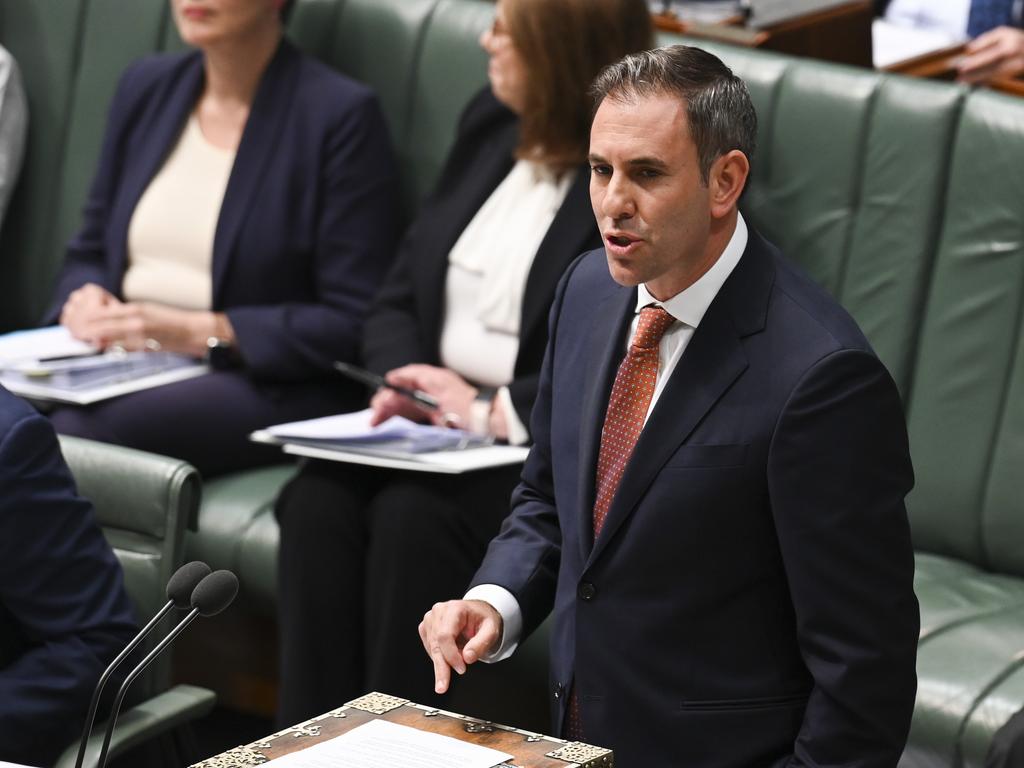AFP boss rejects conflict of interest claims in wake of PwC tax scandal
Australian Federal Police Commissioner Reece Kershaw has been grilled over his organisation’s ties to a scandal-hit consultancy giant.
Australian Federal Police Commissioner Reece Kershaw has been forced to defend handing a contract to his “mate” and former top cop turned PricewaterhouseCoopers partner in the wake of a tax scandal at the consultancy giant.
Mr Kershaw was grilled over the AFP’s ties to PwC at a senate estimates hearing on Thursday. He rejected claims he had a conflict of interest because of his friendship with ex-NSW Police commissioner Mick Fuller, now a senior PwC employee in Sydney.
He answered “yes” when he was asked if he had considered the potential for there to be a conflict of interest before the AFP decided to award Mr Fuller a contract in his PwC capacity to prepare a report on ACT Policing.
AFP chief operating officer Charlotte Tressler then said Mr Kershaw wasn’t involved in hiring PwC for the work involving Mr Fuller, stating the process complied with Commonwealth procurement rules and the consultancy was chosen because it was the best “value for money”.

Mr Kershaw said he’d never made a conflict of interest declaration in relation to PwC regarding his friendship with Mr Fuller.
Asked twice if he thought he should have, Mr Kershaw would only say: “I’ve not put one in.”
Mr Kershaw confirmed he had received a text message from Mr Fuller since the PwC scandal broke.
Asked what the message said, Mr Kershaw replied: “He’s disappointed with what’s occurred. As in, the conduct, not of him of course – of the firm”.
Mr Kershaw said he’d seek advice on whether he could provide a copy of the message to the senate committee.
It was also revealed at the hearing that the AFP had nine active contracts with the consultancy for internal auditing services when it launched a criminal investigation into former PwC executive Peter Collins.
Treasury referred Mr Collins to the federal police this week following revelations he allegedly shared confidential Commonwealth information about changes to tax laws with partners, staff and clients that would be affected by them.
Mr Kershaw vigorously defended the AFP’s ability to investigate Mr Collins while retaining its own PwC contracts worth millions of dollars.
He said he understand how this could be viewed as a conflict of interest, but he had “the utmost confidence” in the AFP’s “internal systems” relating to integrity and the organisation was good at “compartmentalising” its work.
Ms Tressler insisted the AFP had “appropriate” confidentiality agreements with all PwC staff working on their audit team who had also undergone security vetting.
“We can very clearly manage conflict of interest in that regard,” she said.

Ms Tressler said senior AFP officials would meet with its internal audit and risk committee to consider its working relationship with PwC for the next year as part of a review of the federal police’s arrangements with the company.
AFP National Security Deputy Commissioner Ian McCartney confirmed earlier on Thursday that federal police were investigating Mr Collins after receiving Treasury’s referral on Wednesday.
Speaking at the same senate estimates hearing, Mr McCartney flagged the investigation, which will probe Mr Collins’ sharing of government briefings about combating tax avoidance with clients and partners, could widen to involve other PwC staff.
Home Affairs Minister Clare O’Neil described the PwC tax scandal as a “grotesque betrayal of trust” but said legal constraints had hamstrung the government from withdrawing from its contracts with the consultancy firm.
“We can’t break the law just because we’re the government,” she told ABC Radio on Thursday morning.
“But we are doing everything we can to make sure there is accountability here.”
PwC has ordered an independent review of the firm’s governance, accountability and culture to be led by Australian business leader Ziggy Switkowski.
But the discovery of Mr Collins’ alleged malpractice has triggered broader questions about consulting firms’ relationship with the government and their responsibilities when dealing with sensitive information.
A recent Centre for Public Integrity report showed the big four consulting firms — Deloitte, EY, KPMG and PwC — had increased their dealings with the federal government by 400 per cent and raked in more than $4bn in Commonwealth contracts over the past decade.

Treasurer Jim Chalmers earlier this week said there would be “further steps” taken against PwC, labelling its conduct “deeply troubling” and flagging a government crackdown on the leaking of confidential information by consulting firms.
Home Affairs boss Mike Pezzullo told senate estimates earlier this week that he had lost confidence in PwC but would give the company a chance to prove itself under its new leadership after its former Australian chief executive, Tom Seymour, resigned.
Mr Pezzullo described the scandal as a “salutary example” of why the new National Anti-Corruption Commission was sorely needed.
“As far as I’m concerned, the advent of the NACC could not have come too soon,” he said.
“We have to throw the anti-corruption integrity net much more widely to get into the full supply chain of people who deal with the commonwealth,” he said.
But Mr Pezzullo said it wasn’t up to him to rule out working with PwC as an individual department secretary unless the government imposed a ban on the company.



